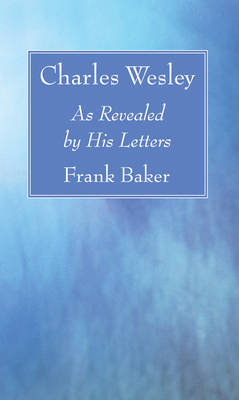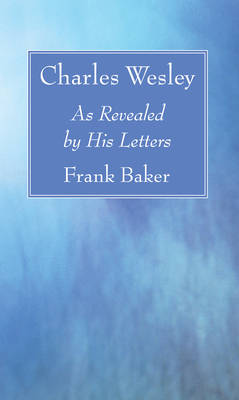
Bedankt voor het vertrouwen het afgelopen jaar! Om jou te bedanken bieden we GRATIS verzending (in België) aan op alles gedurende de hele maand januari.
- Afhalen na 1 uur in een winkel met voorraad
- In januari gratis thuislevering in België
- Ruim aanbod met 7 miljoen producten
Bedankt voor het vertrouwen het afgelopen jaar! Om jou te bedanken bieden we GRATIS verzending (in België) aan op alles gedurende de hele maand januari.
- Afhalen na 1 uur in een winkel met voorraad
- In januari gratis thuislevering in België
- Ruim aanbod met 7 miljoen producten
Zoeken
Omschrijving
"Charles Wesley is not as well known, even amongst Methodists, as he deserves to be. This seems at first very surprising, in view of the generally acknowledged fact that his hymns were such a strong formative influence in the Methodist Revival, and have since become the treasured possession of the Church Universal. The main reason for the comparative neglect of Charles Wesley is, of course, John Wesley. John has completely overshadowed his younger brother. Reasons are not far to seek. John Wesley's was the more dominant personality. His gift of leadership was far greater. Their views on the relationship between the Methodist societies and the Church of England differed considerably, John being led almost without knowing it--certainly without acknowledging it--into a separation, from which Charles was continually striving to pull him back, occasionally with a severe scolding thrown in. Similarly Charles Wesley did not favor the enhanced status which was accorded by his brother to their lay helpers. Because of these differences Charles kept the peace by retiring into semi-obscurity, a course to which he was urged by the breakdown in his health, and also in a lesser degree by family responsibilities. So it was the Methodism came to be identified both with the views and with the person of John Wesley, whilst 'brother Charles' remained for most people very much in the background." -- From the Introduction
Specificaties
Betrokkenen
- Auteur(s):
- Uitgeverij:
Inhoud
- Aantal bladzijden:
- 164
- Taal:
- Engels
Eigenschappen
- Productcode (EAN):
- 9781532630682
- Verschijningsdatum:
- 28/06/2017
- Uitvoering:
- Paperback
- Formaat:
- Trade paperback (VS)
- Afmetingen:
- 127 mm x 201 mm
- Gewicht:
- 113 g

Alleen bij Standaard Boekhandel
+ 66 punten op je klantenkaart van Standaard Boekhandel
Beoordelingen
We publiceren alleen reviews die voldoen aan de voorwaarden voor reviews. Bekijk onze voorwaarden voor reviews.









